June 8, 2025 | 17:36 GMT +7
June 8, 2025 | 17:36 GMT +7
Hotline: 0913.378.918
June 8, 2025 | 17:36 GMT +7
Hotline: 0913.378.918
The RiceMoRe rice production monitoring system, which was recently launched in Ho Chi Minh city, is the result of research, development, and refinement by the Department of Crop Production, the Center for Agriculture Digital Transformation and Statistics (MARD), and the International Rice Research Institute (IRRI), with support from the New Zealand Government.
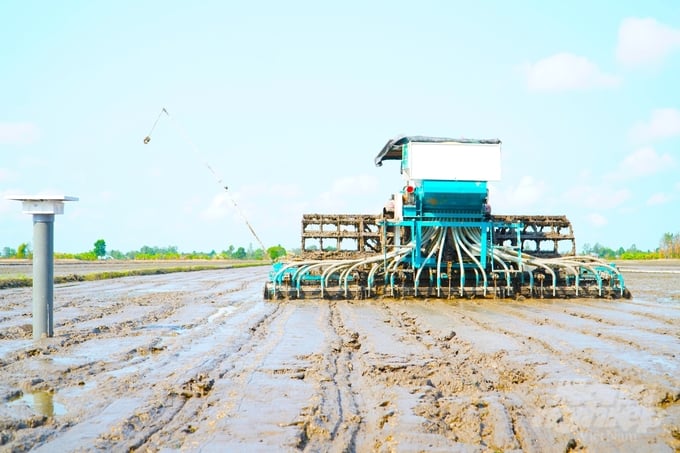
The sustainable development project of 1 million hectares of high-quality, low-emission rice monoculture is the first large-scale low-carbon rice production program implemented globally. Photo: Nguyen Thuy.
Mr. Scott James, New Zealand’s Consul General and Trade Commissioner, stated that the New Zealand Government has supported Vietnam and other countries through the CGIAR initiative (Consultative Group for International Agricultural Research), particularly the initiative to protect major deltas in Asia by establishing sustainable agricultural systems that are more resilient to climate change challenges.
According to Mr. Ole Sander, Head of Climate Change (IRRI), rice production provides livelihoods for millions and ensures food security for both Vietnam and the world. However, rice production is also a significant source of methane emissions, one of the most impactful greenhouse gases on global warming.
The launch of the RiceMoRe application marks an important milestone not only for Vietnam’s efforts to combat climate change but also demonstrates the government’s commitment to reducing greenhouse gas emissions.
“Vietnam has a long history of being a leading rice-producing country. The launch of RiceMoRe strongly reflects Vietnam's leadership in technological innovation for rice production. Vietnam is among the top countries in efforts to reduce greenhouse gas emissions from rice cultivation in the region,” emphasized Mr. Ole Sander.
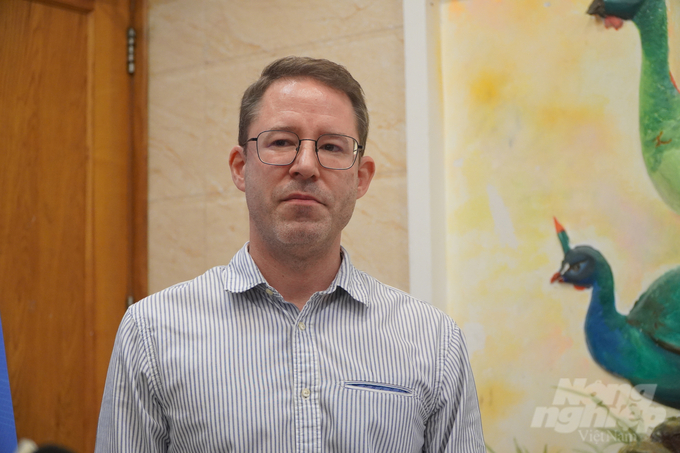
Mr. Ole Sander, Head of Climate Change (IRRI). Photo: Nguyen Thuy.
RiceMoRe allows agricultural officials to collect and report data from local areas to higher levels. These data are crucial in estimating greenhouse gas emissions from rice cultivation, a type of data that no other country has been able to collect or monitor to support emission estimation from rice production.
Additionally, this system can help Vietnam monitor its commitments to reducing emissions, such as methane reduction pledges or commitments under the Paris Agreement, by collecting specific and accurate information on rice cultivation practices that lead to greenhouse gas emission reductions.
This system has the potential to build carbon markets in agriculture by encouraging farmers to adopt emission-reducing practices in rice cultivation, enhancing transparency and accuracy in data management, and promoting sustainable rice production.
According to Mr. Le Thanh Tung, Deputy Director of the Department of Crop Production, since 2018, the crop production sector has collaborated with IRRI to develop the concept of digital transformation in monitoring and reporting production activities, testing, and improving RiceMoRe versions, which are applicable on both web and mobile apps.
In July 2024, the RiceMoRe system was evaluated and certified for information security. On July 4, 2024, MARD issued a decision recommending the use of RiceMoRe as an MRV tool (Monitoring, Reporting, and Verification) for pilot greenhouse gas emission reduction models.
The RiceMoRe system was officially managed and operated by the Center for Agriculture Digital Transformation and Statistics and the Department of Crop Production on September 9, 2024. By the end of 2024, RiceMoRe is expected to expand to 28 provinces and cities.
RiceMoRe includes pest warnings, early disaster risk alerts, agricultural insurance, and planning for reserves and exports. Based on its application in rice production, the crop production sector could use RiceMoRe as a foundation to develop monitoring and reporting systems for about 30 other crop products.
Translated by Kieu Chi
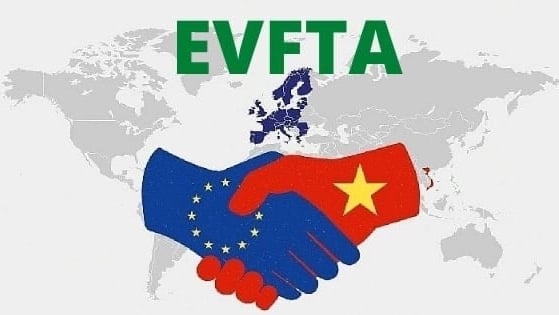
(VAN) The benefits brought by the EVFTA are particularly significant, as the EU has consistently been one of Vietnam's four largest export markets for agricultural, forestry, and fishery products.
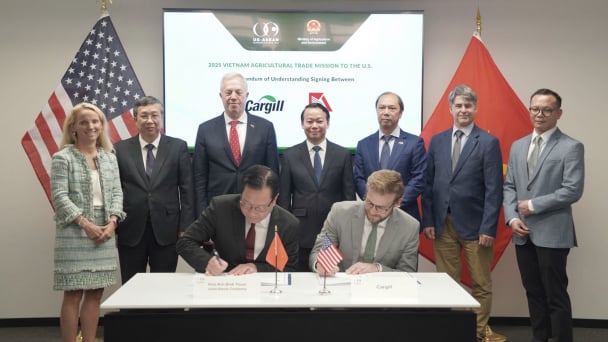
(VAN) Vietnam agribusinesses accompanying Minister Do Duc Duy signed agreements worth $1.1 billion, raising the total number of MOUs during the trip to 20, with a combined value approaching $3 billion.
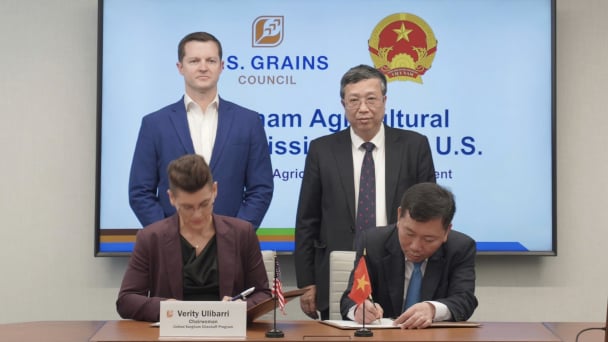
(VAN) The U.S. Grains Council signed a 5-year cooperation agreement with the Partnership for Sustainable Agriculture in Vietnam (PSAV) during MAE's agricultural trade mission.
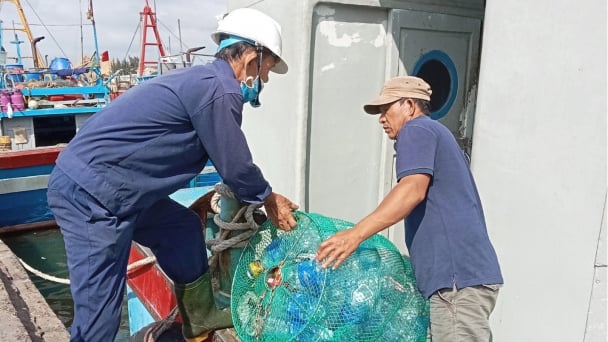
(VAN) Vietnam Agriculture and Nature News interviewed Mr. Vu Thai Truong, Acting Head of Climate Change and Environment at UNDP Vietnam on the occasion of World Environment Day (June 5).
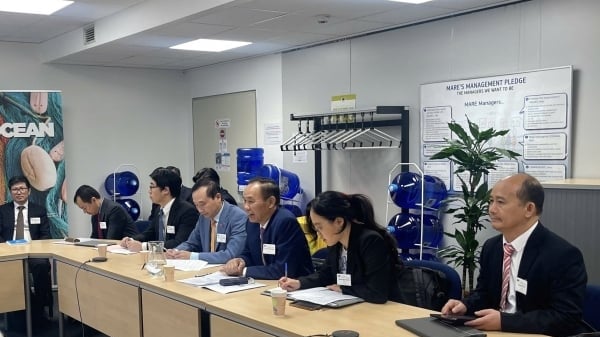
(VAN) On June 5, Deputy Minister of Agriculture and Environment Phung Duc Tien held a working session with the Directorate-General for Maritime Affairs and Fisheries of the European Commission (DG MARE).
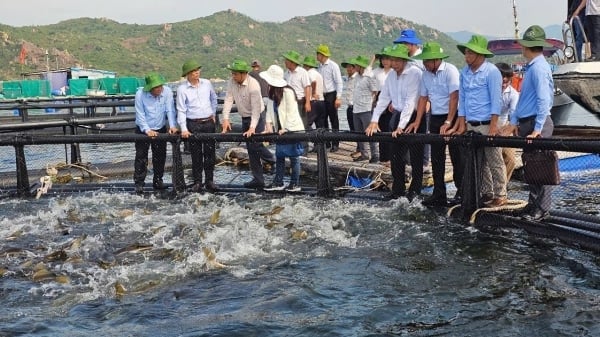
(VAN) According to Prof. Dr. Mai Trong Nhuan, former Director of Vietnam National University, Hanoi, the national ocean spatial plan is devised to guide the ocean economy toward achieving its key objectives.
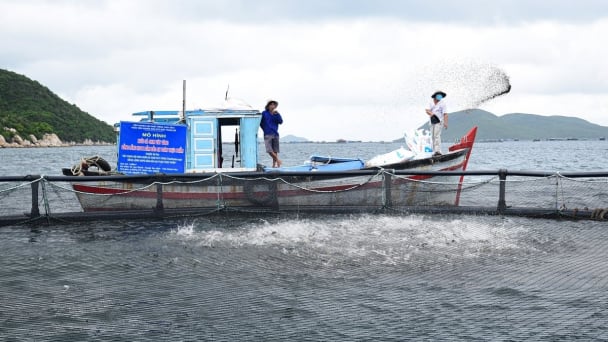
(VAN) Vietnam’s aquatic resources decreased from over 5 million tons in the period 2000-2005 to just over 3.9 million tons in the period 2016-2020.